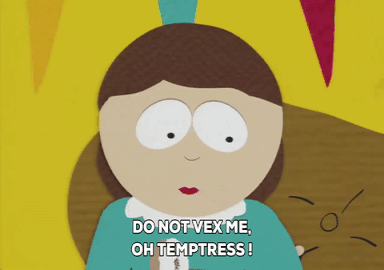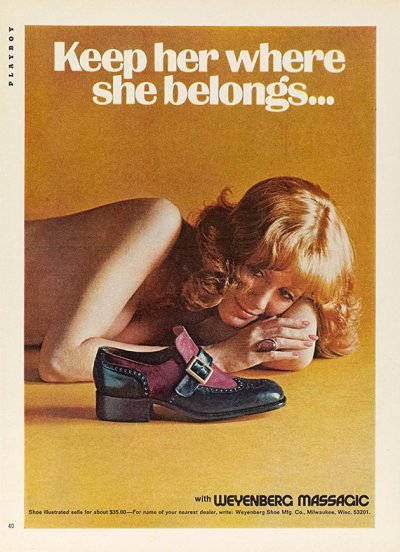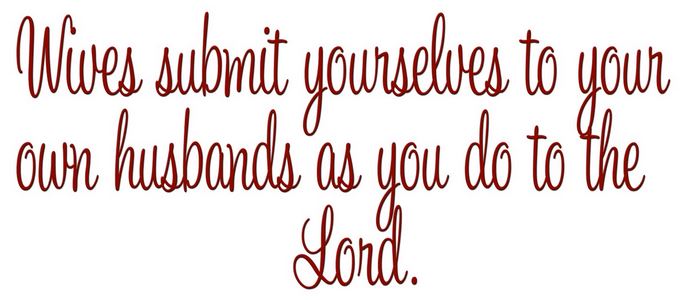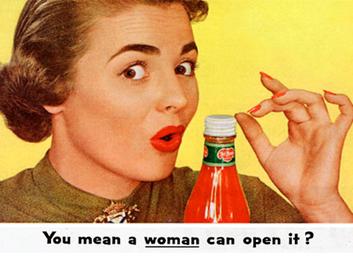
I grew up in a system of religious faith that taught me a negative view of women. Every Independent Fundamentalist Baptist (IFB) pastor and professor who instructed me in the True Christian Faith® taught me the following:
- Women were created by God to be their husbands’ helpmeets.
- Women are commanded by God to be keepers of their homes. Their primary tasks are housekeeping, cooking meals, caring for children, and spreading their legs whenever their husbands want sex.
- Women, when compared to men, are weaker vessels and need the protection of males.
- Men are the head of their homes and their wives are to submit to their rule and authority.
- Women are temptresses, leading men (and teen boys) into sexual immorality.
- Women have the duty to dress in ways to keep men from lusting after them. Women, then, are sexual gatekeepers.
- Women cannot be pastors or serve in any church capacity that puts them in authority over men. Some pastors and professors taught me that women were to be silent in church and were not permitted to participate in church governance.
These beliefs were modeled — albeit imperfectly and hypocritically — to me throughout my primary, secondary, and post-secondary years of school. It should come as no surprise, then, that once I began preaching and pastoring churches, I taught these beliefs to congregants. Multiple generations of people were taught by me that women were inferior, dangerous beings best suited for domestic work, teaching women, preparing church dinners, and staffing the nursery. Women who violated these Biblical “truths” were viewed as rebellious towards God, their churches, and their husbands.
My wife and I lived by these beliefs for many years. Our home was what I would call a traditional IFB home. Not only did Polly care for the home, she also home-schooled our six children. For five years, she taught our children and others in our church’s private Christian school. Polly did work in a church daycare (Temple Tots, a ministry of the Newark Baptist Temple) and taught third grade for one year at Licking County Christian Academy in Heath, Ohio. Polly received a lesser wage than male teachers because I was the head of our home; she was not.
Ten years before we deconverted, Polly took a job cleaning offices at a local manufacturing concern. She works for this company today as a manager, recently celebrating twenty-seven years on the job. By the time Polly started working at Sauder Woodworking, our marriage had evolved, taking on more of an egalitarian quality. Our quest for true marital equality and egalitarianism continues to this day. Old habits die hard, but we do try to present an egalitarian model to our children and grandchildren. I suspect this late in the game we will never outlive the deep marks complementarianism has made on us personally, on our marriage, and on our children.
It wasn’t until I deconverted that I was able to have female friends. As long as Jesus and I were best friends, I had no female friends. How could I, since I believed that some women were temptresses out to seduce and bed me? I had women I considered acquaintances, but I always kept them at arm’s length out of fear of being tempted to sin. I was taught to avoid the very appearance of evil. Thus, I was not permitted to enjoy the company of women if my wife was not present. No social interaction whatsoever was permitted. Of course, this kind of thinking cut me off from a wealth of wisdom and knowledge. When it came to the churches I pastored, I ran the show, and when serious decisions had to be made, it was the men who made them. Women were permitted to vote in business meetings, but there was no doubt about which sex and which member of that sex was in charge.
in 2008, I divorced Jesus. Once free of Christianity, I was then free to be friends with whomever I wanted, regardless of their sex or gender. Now, this doesn’t mean that I am oblivious to the fact that close company with the opposite sex can and does lead to moral compromise. That said, I don’t “fear” women. I own my sexuality, so it’s up to me how and to what degree I interact with women. Both Polly and I are free to enjoy the company of the opposite (or same) sex, even though, quite frankly, we enjoy one another’s company the most.
Several years ago, I had my beard trimmed. I was starting to look a lot more like Ted Kaczynski, the Unabomber, than Santa Claus. Prior to this appointment, my hair — when I had any — and beard had always been trimmed by men. This time a woman trimmed my beard. I became casually acquainted with her (and her husband) several years ago as I photographed my grandson’s baseball games. Her son played on my grandson’s team. I had run into her many times since at baseball games, high school games, and school events. I knew that she cut hair, so I asked her if she trimmed beards. I told her my previous barber was quite a hack, and I was looking for someone to care for Santa’s beard. She told me she trimmed beards, so I had her cut mine. She did a wonderful job. I must admit that it felt strange having a woman not named Polly run her fingers through my beard.
As Polly and I were leaving, I told the woman who trimmed my beard, “you are the first woman to ever cut my hair or trim my beard in almost sixty-two years.” I did not tell her that it took divorcing Jesus for me to be comfortable with a woman who is not my wife touching my hair and/or beard. I believe she is religious, so I don’t want to have THAT discussion while she has scissors in her hand.
Did you avoid relationships with the opposite sex due to your religious beliefs? Please share your thoughts in the comment section.
Bruce Gerencser, 68, lives in rural Northwest Ohio with his wife of 47 years. He and his wife have six grown children and sixteen grandchildren. Bruce pastored Evangelical churches for twenty-five years in Ohio, Texas, and Michigan. Bruce left the ministry in 2005, and in 2008 he left Christianity. Bruce is now a humanist and an atheist.
Your comments are welcome and appreciated. All first-time comments are moderated. Please read the commenting rules before commenting.
You can email Bruce via the Contact Form.




 As we know from the Bible, women are the weaker sex (1 Peter 3:7) and are more easily deceived (1 Timothy 2:14). We allow our emotions to control some of our life and decisions. This is why God has said that women are not to teach nor be in authority over men (1 Timothy 2:12). God made women and men differently for the different purposes He has created them for. He has created women to get married, bear children, and guide the home (1 Timothy 5:14 and Titus 2:4, 5).
As we know from the Bible, women are the weaker sex (1 Peter 3:7) and are more easily deceived (1 Timothy 2:14). We allow our emotions to control some of our life and decisions. This is why God has said that women are not to teach nor be in authority over men (1 Timothy 2:12). God made women and men differently for the different purposes He has created them for. He has created women to get married, bear children, and guide the home (1 Timothy 5:14 and Titus 2:4, 5).